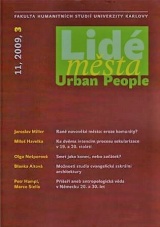Smrt jako konec, nebo začátek?
O (ne)víře v posmrtný život
DOI:
https://doi.org/10.14712/12128112.3642Klíčová slova:
Death, afterlife, religion, Czech society, sociology of religionAbstrakt
The article overviews the spreading of faith in the afterlife in contemporary Czech society while using data from the international ISSP research focused on religion (1998 and 2008), complemented by qualitative research results on the character of ideas of the afterlife. In the European context, faith in the afterlife is not so common in the Czech Republic; more than half of the Czech population today sees death as the definitive end of life. This is not caused only by the small amount of believers, but also by a great divergence from believing in the afterlife in the last decade (mostly in younger age categories). Contemporary notions of the afterlife are also very vague, and besides the abstractly conceived ideas of Heaven and Hell, new conceptions have arisen, of which the most widespread is the belief in reincarnation of souls. The article describes specific ideas of middle-aged Czechs (30–50 years old), not only non-believers, but practicing Roman Catholics, as well.
Stahování
Publikováno
Jak citovat
Číslo
Sekce
Licence

Tato práce je licencována pod Mezinárodní licencí Creative Commons Attribution-NonCommercial-NoDerivatives 4.0.


